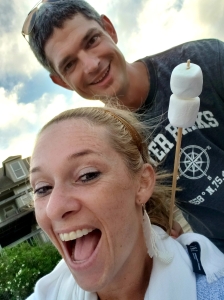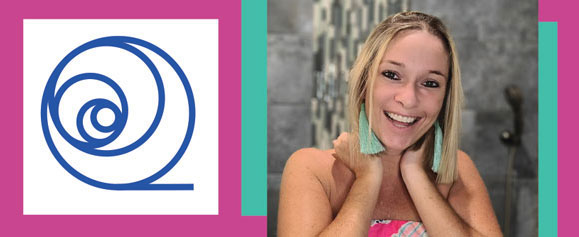
Over the last several months I’ve connected with friends from around the globe and have observed a wide array of different reactions on how they have been dealing with the pandemic during lock-down, and how their normal lives have changed to date.
This pandemic is not going anywhere anytime soon, and as such, many people have had to change their daily routines such as working from home, wearing a mask to places of business, limiting their movement in social gatherings, etc. Leaving aside the economic impact, I’ve been curious as to how people have been coping mentally. More specifically, I have so many friends who have also sustained a spinal cord injury (SCI) as well as many able-bodied friends.

I’ve noticed a stark contrast in how many of my SCI friends have been coping with the pandemic versus my friends with two working legs. Personally, I can relate more closely my SCI friends on this front. The pandemic has caused me to push the pause button on my life since taking that fateful shallow water dive 10 years ago this August.
Many of us with SCI live in social isolation on a regular basis. Again, this is not everyone, but many of us. There are countless reasons why this is true whether that be from lack of family to take us out, not having a vehicle, medical challenges keeping us at home, not been able to work, pain, etc. I can’t speak for everyone, but I can only share my personal experience over the last several months.
Many of you who know me consider me an extreme extrovert, bubbly, talkative, think I get out about all the time, am extremely active in the community, and so much more. The harsh reality of it is that while my personality definitely encompasses all of those traits, my severely disabled body actually keeps me at home most of the week. When I post on social media and people see me prancing all around town as well as taking trips of my husband – this usually only comprises of several hours of my day on a weekend.


“Okay were definitely prancing around a fire pit on this one :-)”
Monday through Friday I wake up at 5:30 AM in the morning, work with my caregiver to go to the bathroom, get dressed, exercise, and then I am in front of my computer screens for the rest of the day unless I have a doctor’s appointment or a planned outing.
I really do love to get out and I love people, but I have to work within the confines of what my body lets me “do” most days. I’ve touched on this topic many times in previous articles; but I do suffer from severe nerve pain, which, more often than not, limits my energy level on any given day. My mind is able to work for 16 hours straight, but after about 8 hours my body dictates how I allocate the rest of my time in a day.

“She” lets me know mid-afternoon that she would like to wind down. While “I” am more than welcome to work in bed from my laptop, “she” has no desire to be upright anymore due to burning pins and needles throughout my body, and severe neck pain from a previous spinal surgery I underwent in China back in 2013.
Don’t get me wrong, I’ve learned to adapt to this and I’m not complaining, but what my life looks like from the outside is strikingly different than the reality of what I live with daily.
Onto Covid-19 …
Since I spend most of my days working from my computer, when the pandemic hit my life really didn’t change that much. The difference is that I have learned to thrive in social isolation, not including having caregivers around me 24/7 and being connected to the digital world, which prepared me well for the pandemic lock-down.
I’ve conditioned myself to create an independent world within my mind where I can amuse myself day in and day out without having to leave the house. You must remember I’ve spent nearly a year in bed looking at four walls after having dealt with a serious pressure sore on my backside, and undergoing multiple surgeries. This changes a person. How could it not?

“Tucked in Bed – Yes I’m still a kid when it comes to smiling with stuffed animals”
During my year in bed I would wake up in the morning, create a schedule where I would lift weights in my bed, read for an hour, work for several hours, engage with other SCI folks on social media, and call my friends. I created a schedule such that it pushed my mind to be engaged creatively, critically, and thoughtfully. I didn’t have the luxury of going out to see a friend and still don’t during the weekdays because when most people grab dinner together after work I’m already tucked away in my bed managing my pain levels. This is okay, but just an adjustment I had to slowly and consciously make over years.
In the beginning it was really tough, arduous, and, frankly, depressing. So, I understand why so many of my able-bodied friends struggled to be inside for nearly 2 months because they were not conditioned to live this way. Many of us with SCI don’t have a choice and therefore, I believe, were better mentally equipped to handle such a pandemic.
Thriving in a Pandemic …
To take things a step further my life has actually drastically changed since the onset of Covid-19. I’ve made new and incredible friends during the pandemic because so many people were stuck inside, and had to operate virtually.
The pandemic also set me on a course for a serious life change. I’ve always loved helping people as it brings me so much joy, but other than my writing, I wasn’t quite sure how to propel that mission forward.
Over the last several months I’ve been fighting with my insurance company on getting different pieces of medically necessary equipment approved for myself in my home, which were initially all denied. The pandemic offered me the opportunity to stop and think how I could best create an advocacy campaign to propel this new passion forward on helping folks win the necessary battles with their insurance companies so they can, not only live survive life, but live it to its fullest potential.

I always refer to myself as “pleasantly persistent,” aka “stalker” to some, but a nice one 😉 When I see something I really want I go for 110%. I was previously connected to the disability world, but the pandemic just re-ignited a spark inside me to push harder. I reached out to the Christopher Reeve Foundation, United Spinal Association, SPINALpedia, the local news, local disability organizations, and many more. This was all prompted after a final denial decision was issued to me by my insurance company for a medically necessary seat elevator for my power wheelchair.

As so many of us were stuck inside I had the time to reach out to so many people who have been more than welcoming, invited me to join their team, and offered me the opportunity to use their organization as a platform for my own mission to help a greater number of people. Now, I’m just getting started and have an extremely long way to go, but being stuck inside during the pandemic allowed me to explore my creativity and re-assess what’s really important in life for me.
In short, the small things. Many of us intuitively know that life is about the small things, but rarely do we embrace that when getting caught up in the daily drama of our own lives.
I’m sure this was put into focus for so many while being stuck at home. For me, I’ve always appreciated the small things that so many don’t because those small things for most are huge for me. For example, simply having enough arm strength to hold my own water bottle. Small, but powerful.
The small things, however, are always things I have appreciated, but I wanted to go more global in my advocacy efforts.
Presently I’m a madwoman on watching tutorials on how to get a YouTube channel started, have a bigger impact on Instagram, editing articles for different national disability organizations, partnering with organizations on different campaigns, and building relationships with local investigative reporters – to name a few. While my focus may be a little broad at the moment, and I definitely need to narrow it down, I’m just exploring the endless possibilities of being able to expand my virtual reach since that is the direction our society is moving towards even more in the foreseeable future.
Just Remember …
While you start to re-emerge into society, go to dinner with your friends or family, start traveling again, etc. it’s easy to forget what life being cooped up during the lock-down phase of the pandemic was like.
Take a moment to stop and think about how your priorities shifted when you were in lock-down; what were you thinking about? what did you want to change in your life when life started to get back to normal?
A little trick I have adopted throughout my life is to literally write Post-it notes and stick them on a type of inspiration board. It can be easy to forget what was bringing you down or making you happy a month ago if it’s not right in front of your face.
As for living with a spinal cord injury during the pandemic – I may not have been physically or mentally affected by it in a negative way, but it’s incredible how a tragedy can spur the creation of something inspirational for you, and potentially life-changing.


“My Happy Place”


